NATO Defence Ministers Meet in Brussels
Text: Ministry of Defence of Hungary | Photo: nato.int and Ministry of Defence | 07:20 October 24, 2021The defence ministers of the NATO member states met on 21-22 October in Brussels. At the meeting, the ministers touched on topics such as the Alliance's deterrence and defence posture, and the situation in Afghanistan and Iraq. At a seminar prior to the NATO meetings, European Union defence ministers discussed the "Strategic Compass" process, which will determine the future of European defence. There was also a ministerial meeting of the member states of the German-led Framework Nation Concept.
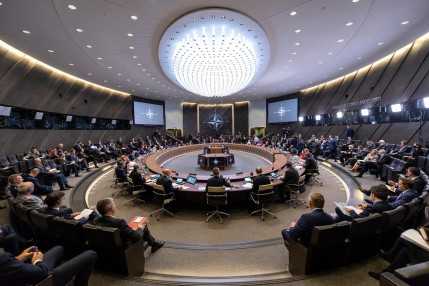
Before the NATO Defence Ministerial Meeting, the EU member states held a ministerial meeting on the issue of Strategic Compass, before the approval of the draft document due to be issued on 16th November. Hungarian Defence Minister Tibor Benkő said that Hungary is committed to an effective, well-functioning common security and defence policy. The objective is to maintain a strong Europe and a strong transatlantic relationship, for which it is essential to improve the EU's response capacity, and to increase the effectiveness of capability development in line with NATO's defence planning.
The defence minister emphasized that the Strategic Compass process seeks to define the future role of European Defence. Cooperation based on national capabilities is of paramount importance for Hungary, which can lay the foundations for a stronger European Defence. One way of doing this is to build a European response capability that will enable us to deal with crises more rapidly and efficiently. Hungary has already actively participated in the EU Battlegroups providing readiness capability for the EU, and is committed to participating in the German led formation in 2025. In addition to continuing our participation in the future rotations, we are also open to the debate on setting up a so-called 'intervention force'.
The Hungarian Minister of Defence stated that Hungary’s primary approach is to create the most effective capability to respond to crises on the periphery of Europe, helping address problems where they arise. A European defence that offers a solution to this issue is and will be continuously supported by Hungary, provided that the consensual decision-making mechanism remains intact.
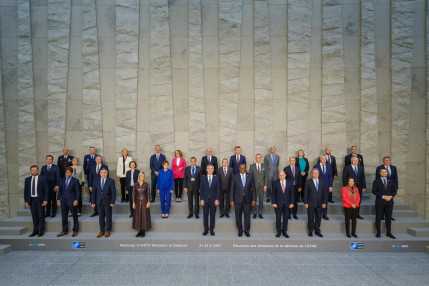
In the framework of NATO meetings, the German framework group's defence ministers also held negotiations. The leaders made a decision on strengthening the operational focus of cooperation, which previously concentrated mainly on military capability development, with a view to facilitating EU and NATO force generation processes in the future.
Defence minister Tibor Benkő highlighted: within the NATO framework nation concept, Hungary participates primarily in the German led formation. Our goal is to cooperate with the capabilities of the renewed Hungarian Defence Forces as a result of the Defence and Armed Forces Development Program in multinational forms of cooperation with nations that think similarly about European security, thus strengthening the framework of regional cooperation and development.
The NATO defence ministers also discussed options for further development of the deterrence and defence strategy. The Hungarian Defence Minister said that in Hungary's opinion, NATO must be ready for any challenge. Due to its geographical and geostrategic location, Hungary is affected by both eastern and southern challenges. While we express solidarity with and support our Eastern allies, Hungary is and in the future may be directly and severely affected by the challenges of the south (migration, terrorism, unstable states) therefore we support the so-called 360-degree approach.
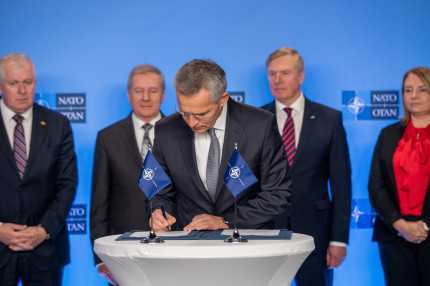
At the meeting, the defence ministers approved the results of NATO's defence planning cycle. Based on them, the Hungarian Defence and Armed Forces Development Program remains in line with NATO's goals. We will strengthen the credibility of NATO's collective defence by developing national self-sufficiency and taking advantage of multinational cooperation opportunities, such as the Headquarters Multinational Division-Centre (HQ MND-C).
At the ministerial meeting in Brussels, two memoranda of understanding important for strengthening the transatlantic cooperation were also signed by the ministers of the involved Member States. NATO and its Allies have recognized that they can no longer take their technological advantage for granted, so they proposed a method based on civilian cooperation to develop new state-of-the-art technologies.
To this end, Defence Innovation Accelerator for the North Atlantic (DIANA) and NATO Innovation Fund (NIF) were launched at the Alliance's summit on 14th June as part of the NATO 2030 initiative. These two initiatives were now signed, in which Hungary also made offers. With regard to signing the letter of intent, Defence Minister Tibor Benkő emphasized that defence innovation and revolutionary technologies play an increasingly important role in modern warfare, complemented by cyber warfare. These are not only challenges but also opportunities. Hungary's innovation capacities are well-known, and we are ready to use them within the framework of NATO.
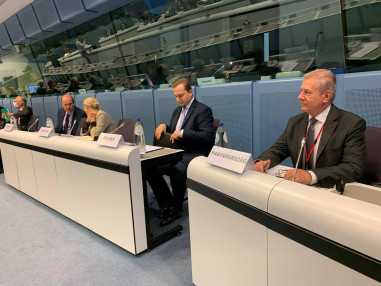
The situation in Afghanistan was also a key topic at the meeting of defence ministers, about which the Defence Minister said that in accordance with the Alliance’s decisions on the Resolute Support Mission, the Hungarian contingents and some personnel in individual deployment had been withdrawn by the end of 2020.
The Minister of Defence emphasized that the last nine Hungarian soldiers left the theatre of war in June this year, adhering to the principle of "together in, together out", defined by the NATO leadership. Due to the situation in Afghanistan that developed after the withdrawal of the Allied troops, the Hungarian Defence Forces took part in the evacuation mission in Kabul in line with the resolution of the Hungarian government. As a result of the action as many as 540 Hungarian, American, Austrian and Afghan citizens were rescued from the Afghan capital. Despite the troops’ withdrawal, maintaining security and stability in the region is clearly of key importance, as it will have a significant impact on illegal migration and terrorism in the coming years, and NATO must pay particular attention at these processes. Moreover, the Alliance needs to begin drawing conclusions collectively.
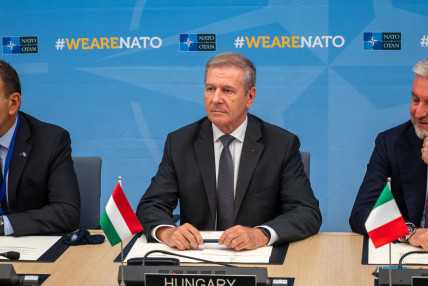

Tibor Benkő: The peace and security of the Western Balkans is a top priority for Hungary
16:35 October 22, 2021